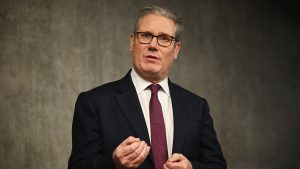Geoffrey Owens, recognized for his role as Elvin Tibideaux on the iconic 1980s sitcom “The Cosby Show,” continues to face financial challenges despite his acting career. The 63-year-old actor revealed in a recent radio interview that he still struggles to make ends meet, a situation that often surprises those who remember him from television. This financial strain persists despite his ongoing work in the entertainment industry, highlighting the precarious nature of a career in acting, even for those who have achieved a degree of fame. Owens’ story underscores the misconception surrounding actors’ earnings, particularly those perceived as “middle-class actors,” whose income can fluctuate considerably and may not provide the stability often assumed.
Owens’ financial difficulties were exacerbated by an incident in 2018 when photos of him working at a Trader Joe’s supermarket were circulated online. He felt compelled to leave the job due to the unwanted attention and the invasion of his privacy. While the public reaction was largely supportive, with offers of work and even a financial donation from rapper Nicki Minaj (which Owens donated to charity), the incident forced him to confront the public’s perception of actors and the challenges of maintaining a steady income in the entertainment industry. He explained that his departure from Trader Joe’s wasn’t driven by an imminent lucrative acting opportunity, but rather the discomfort and anxiety of constant scrutiny.
The actor further explained that the residual payments from “The Cosby Show” were never particularly substantial, partly due to his appearing in only a fraction of the episodes. This limited income stream, coupled with the unpredictable nature of acting work, contributed to his ongoing financial challenges. Owens’ situation paints a realistic picture of the financial realities faced by many actors, even those who have achieved a degree of recognition. It challenges the romanticized notion of a glamorous and financially secure acting career, revealing the vulnerability and instability often experienced by those working in the industry.
The controversy surrounding Bill Cosby, the star of “The Cosby Show,” also impacted Owens’ income. Cosby’s career was effectively ended by numerous accusations of sexual assault, leading to the show being pulled from syndication. This, in turn, affected the residual payments received by the show’s cast, including Owens, further contributing to his financial struggles. These events demonstrate how unforeseen circumstances, particularly scandals involving major figures in a production, can have far-reaching financial repercussions for other individuals involved, even years after the show’s original run.
Owens’ candor about his financial situation sheds light on the challenges faced by many working actors. He emphasized the disparity between public perception and the reality of actors’ earnings, particularly those who aren’t household names. His story serves as a reminder that even actors who have appeared in popular television shows can face financial insecurity, highlighting the need for a more nuanced understanding of the economic realities within the entertainment industry.
In essence, Geoffrey Owens’ experience provides a valuable glimpse into the often precarious financial landscape of the acting profession. His story underscores the importance of recognizing that actors, like many other professionals, can face periods of financial instability and that fame doesn’t necessarily equate to financial security. His openness about his struggles challenges the often-glamorized image of the acting world, offering a more realistic portrayal of the financial realities faced by many in the industry.











